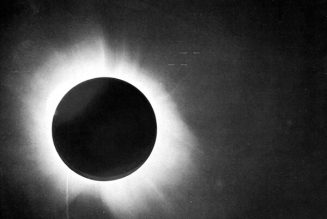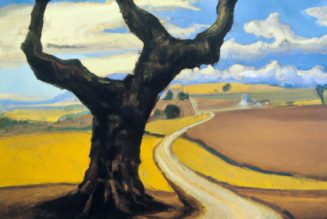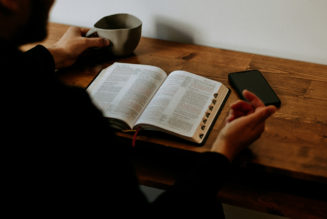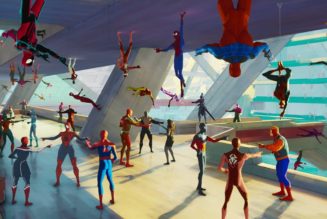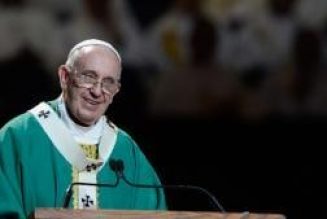, November 25, 2020
Last week the Son of Man was resplendent in glory as angels surrounded his throne and the nations assembled before him.
This week, the First Sunday of Advent, Year B, he is a long way off and we are left on our own in a dark house, hoping that he will come.
The Church does that on purpose: The year ends with a bright, glorious vision then we start over again at nighttime, waiting.
The last thing we want to do is to become accustomed to the darkness while he is “away.”
“It is like a man traveling abroad,” Jesus begins, using words that remind us of all the waiting for masters we heard recently in the Gospels — vineyard workers waiting to get hired, guests waiting for a wedding, or stewards investing the master’s talents while he is gone. The difference is that in this parable, Jesus doesn’t return. It is only about the waiting.
While we are waiting we are supposed to “Be watchful! Be alert!” he says, “May he not come suddenly and find you sleeping.” To sleep while we wait is to fundamentally misunderstand where we are, to think we are in a place of rest and comfort and slip into escapist dreams.
In fact, “The way of the wicked is like deep darkness,” the Proverb says. God is light and “in him there is no darkness at all.” His word “lights our path,” his sacraments put his light in us, and acts of service share his light with others.
Generations of Christians have made the mistake of becoming accustomed to the dark, and we are still paying the price for their mistakes. They conformed to what their society thought about race, violence, or riches and made the Church look foolish and evil.
Today, we get accustomed to the darkness by thinking that the world may be right about Christianity after all; that Catholic teachings should be taken with a grain of salt; that the real saviors are science and technology; and that Scripture is too harsh and outdated.
In 100 years the world will be as disgusted by Christians who accept abortion, sexual sins and the exploitation of the poor today as they are by Christians who were racist, violent, or corrupt in the past. “If the light in [us] is darkness, how great will that darkness be!”
The inescapable conclusion of the Gospel is that the schedule we would make for our last day on earth should be the schedule we make for today.
“He leaves home and places his servants in charge, each with his own work, and orders the gatekeeper to be on the watch,” says Jesus.
Everyone has a task as a mother, father, son or daughter; as neighbor, co-worker, and friend. Bishops and priests are the gatekeepers, meant to keep evil at bay and never to welcome it in through cowardice or compromise.
“Watch, therefore; you do not know when the Lord of the house is coming,” says Jesus, “whether in the evening, or at midnight, or at cockcrow, or in the morning.”
This is a reference to the four watches of the night in the Roman world (the Jews had only three). Thomas Aquinas quotes one ancient Christian writer comparing the watches to the ages of man. Children should be baptized and taught to be ready to for Christ’s return. Jesus should be the passion of the youth, peace in the anxiety of middle age, and inspiration against the self-centeredness of old age.
We need a daily routine that expects death, or the return of Jesus, to come in the morning, when we should be greeting the day in prayer; or at noon, when he should find us witnessing to him for others; or in the evening, when he should find us preparing our family for him; or at night when he should find us encountering his truth, beauty and goodness in what we read or watch.
This life is impossible without hope.
As Pope Benedict said, “Advent is the time when Christians should awaken in their hearts the hope that they can change the world, with the help of God.”
The readings for the First Sunday of Advent point to the Trinity as the source of our hope.
In the First Reading, we see an Old Testament reference to God the Father as Isaiah cries out, “Oh, that you will rend the heavens and come down, with the mountains quaking before you.” He says: “No ear has ever heard, no eye ever seen, any God but you. … You are our father, we are the clay and you the potter: we are all the work of your hands.”
St. Paul in the Second Reading, points to the gifts of the Holy Spirit, assuring the Corinthians that they are “not lacking in any spiritual gift,” specifically, “all discourse and all knowledge.”
He also repeats the name of Jesus Christ six times, driving home that “you were called to fellowship with [the] Son.”
We are never alone in the dark.
So light the Advent candle and see how even the smallest light defeats the darkness.
The Advent candle is a symbol of the light of Christ, with the one light soon to be joined by another light, then another, then another, building up to the flood of lights at Christmas.
We are waiting for the Lord like we wait through the night watches. It is as dark and frightening as being alone at 3 a.m., but our hope in his return is as certain as our hope that the sun will rise again.
Tags: First Sunday of Advent Year B
, prayer, Sunday Gospel, Sunday Readings
Never miss a post! Subscribe below to our weekly newsletter.
Related
Join Our Telegram Group : Salvation & Prosperity


